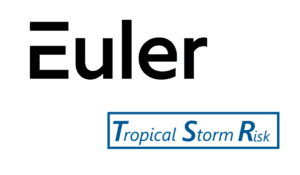GILC report unveils AI’s dual impact on insurance industry

GILC report unveils AI’s dual impact on insurance industry | Insurance Business Canada
Technology
GILC report unveils AI’s dual impact on insurance industry
Opportunities and challenges ahead
Technology
By
Roxanne Libatique
Global Insurance Law Connect (GILC) has unveiled its first report on the integration of artificial intelligence within the insurance industry, offering a comprehensive analysis from 18 countries.
The report navigates through the transformative effects of AI, including enhancements in efficiency and innovation across various insurance operations, while also spotlighting the associated challenges such as potential biases in AI algorithms, privacy concerns, and a heightened risk of cyber incidents.
AI’s role in changing the insurance landscape
Gillian Davidson, GILC chair and a partner at Sparke Helmore Lawyers, emphasised the critical role of AI in revolutionising the insurance landscape.
“AI has already become an essential part of our daily lives and is quickly making its way into the insurance sector. This trend is expected to continue as AI offers numerous benefits including faster claims processing, improved underwriting, innovative insurance products, streamlined administration processes, and more efficient chatbots,” she said.
A significant highlight of the report is AI’s capability to swiftly process and analyse extensive datasets, a feature that is proving invaluable for risk prediction and assessment.
Using AI to better understand risks
Davidson pointed out how AI’s analytic prowess can assist insurers in penetrating markets with complex risk profiles, particularly where historical data is scant. This analytical advantage is instrumental in crafting precise coverage options, especially in areas like cyber insurance.
“Ultimately, this improved risk analysis will benefit consumers as it enables insurers to offer more relevant and tailored coverage to their customers,” she said.
AI regulations
The evolving regulatory landscape surrounding AI is another focal point of the report, with the insurance industry keeping a keen eye on developments such as the EU’s forthcoming AI Act, which is expected to serve as a regulatory blueprint worldwide.
The sector is also acutely aware of the emerging liabilities and risks that accompany AI adoption, including issues of privacy and cybersecurity.
Insurance distribution models
The report touched on the digital transformation within insurance distribution models, a trend accelerated by the COVID-19 pandemic and characterised by a significant shift towards online and digital platforms. This shift is expected to continue, benefiting markets with traditionally low insurance penetration rates.
AI-related challenges
The adoption of AI is not without its data privacy challenges. The report calls attention to the imperative for insurers to establish robust compliance mechanisms with data protection standards to mitigate risks associated with data breaches, and effectively manage any such incidents.
“Currently, insurance solutions tailored to the risks associated with artificial intelligence are still in the early stages of development. However, as the technology advances and becomes more prevalent, and regulatory bodies sharpen their focus, we can expect an increase in AI-targeted risk solutions,” Davidson said.
Related Stories
Keep up with the latest news and events
Join our mailing list, it’s free!





